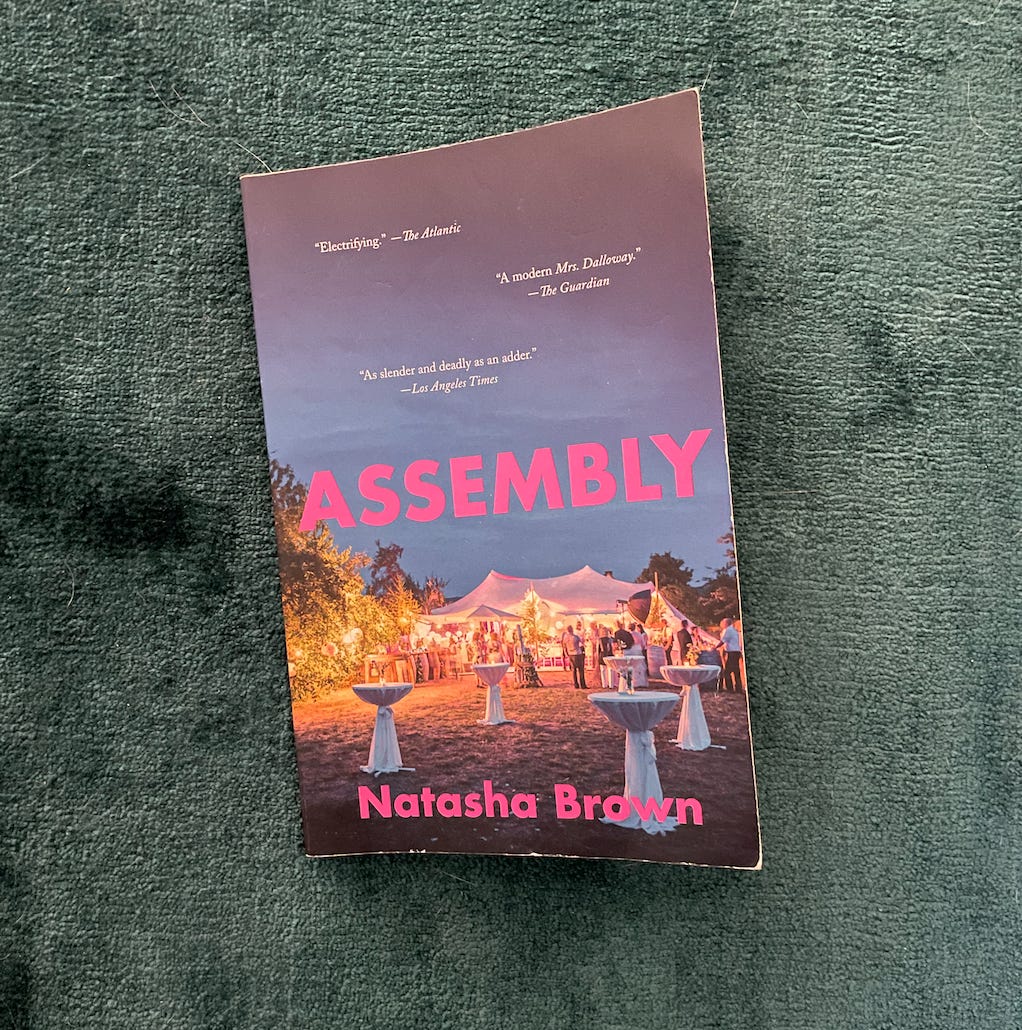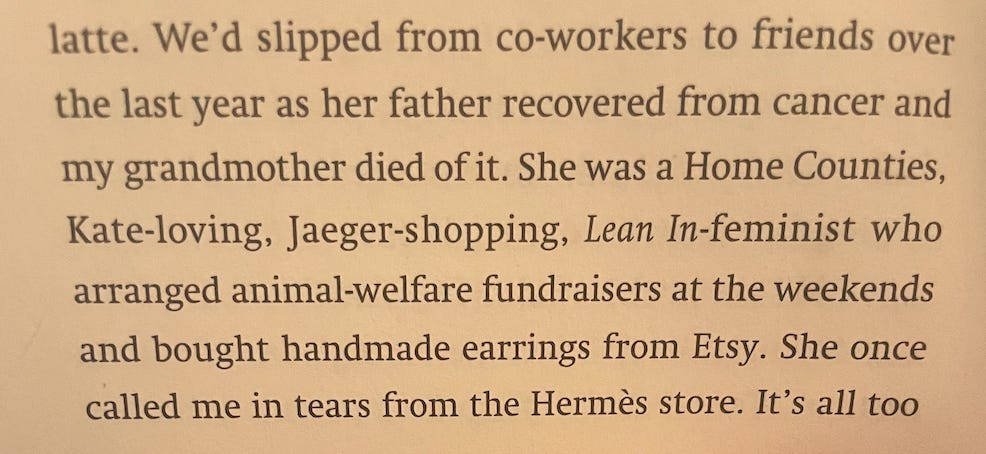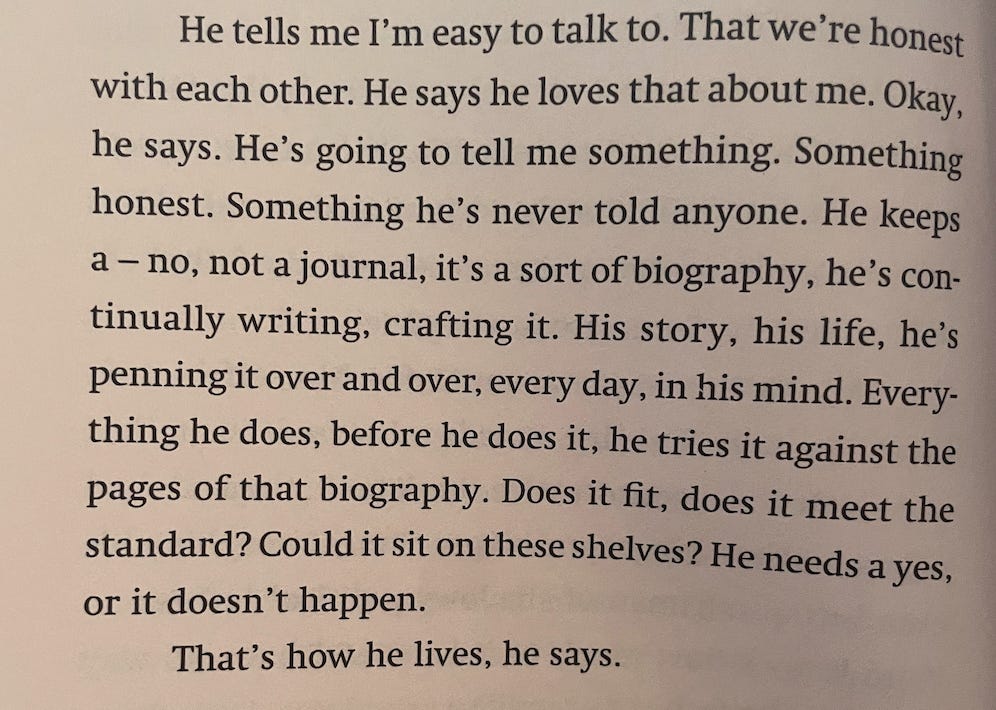Welcome to Purse Book, a weekly newsletter about reading hot little books & being a gal on the go. If you haven’t already, you absolutely may subscribe now:
Assembly is compact, efficient, terse, taught, and tense. This is true of how Brown structures the novel, and also true of every phrase Brown uses. As an aside, the narrator describes the intimate removal of the relationship you have with neighbors in a small apartment building. “Stacked lives.” Now, forever, that will be the way I describe this dynamic to myself. When I think about living in the apartment above a man and a dog (one named Dave, the other named Steve, could never remember who was who), I will think: “stacked lives.”
Yet despite this lucidity with language, the narrator of Assembly is tenaciously silent. Her analysis of her silence screams loudly though. The narrator is a young Black woman working in the elite world of finance in London. She’s dating an upper crust white guy (who is eviscerated in one paragraph I’ve included at the end, scroll down early if you must). Her social relationships and professional ambitions, which both place her in the realms of wealthy white people, have taught her that silence is the most protective path. At various times, she calls it “existing in negative space.”
The novel takes place in hours before the narrator attends her boyfriend’s parents’ 40th wedding anniversary. I don’t have time to get into all this: but anniversary parties are very smug! Maybe they should be illegal! The boyfriend’s parents live on some heirloom British manor and the whole thing is so good about England’s totally oppressive relationship to wealth, which is very different than money.
A book’s ability to contain complexity in such a tiny format shouldn’t be praised on its own, I guess. Except this book issues an incredible series of critiques about class, cultural capital, taxes, wealth, and money; and these ideas are more interesting than full-ass books I’ve read on some of these topics. It’s a book about how your social environment changes you, but also how your own complicity to your social environment changes you. The protagonist’s thoughts are so precise, deeply analytical, harrowing even—but they emerge with the tiniest pointed tip. You feel that they’ve been pressurized, from the silence, into a diamond. This book is that diamond: a hard, mean, precious treasure made from years of crushing force, sharp and tiny and piercing.
Assembly was also the December installment of Purse Book Gals-On-The-Go Official Book Club Book!! Here’s what a couple Gals on the Go thought:
“Anniversary parties are an awful social project, no one should be required to go to one.” - Jon S., who I agree with. But also I reserve all rights to have one in the future !
“This is one of the best portrayals of the slippery conditions of complicity I’ve ever read.” - Allie E.
“i wish i didn’t like the description of the old money parents’ house so much :( ” - Emily C., who read this book while waiting for the dentist!
“Crying in Hermès will be my memoir title.” - H. C.
And one Official Book Club question remains unanswered (to my satisfaction). It’s specifically for someone who is English, who doesn’t respond “ha”: “But like, does money ever become wealth over there ?” If you can respond, truly write back anytime and welcome to the Book Club.
If you’d like to join the club, you can upgrade to a paid subscription here!








